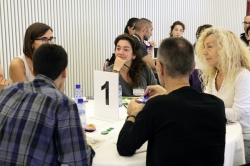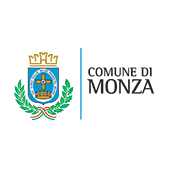On a Saturday in October 2014 one thousand citizens across Europe defied the fact that it was their weekend - and went to work. Not every-day work, though. This particular Saturday presented the European-wide PACITA citizen summits – a day of deliberation and voting about the difficult topic of sustainable consumption.
The citizen summits were held in Bulgaria, Catalonia (Spain), Denmark, Holland, Ireland, Lithuania, Portugal, Czech Republic, Hungary, Wallonia (Belgium) and Austria. Participants discussed a wide range of questions regarding sustainable consumption. For instance:
What policy instruments do you think should be used to stimulate sustainable consumption?
Who should take the main responsibility in striving for a more sustainable consumption?
What would you answer?
Come again, you might think; why would it be necessary for one thousand Europeans to leave their homes to talk about a complex issue such as sustainable consumption?
The purpose of the PACITA citizen summit on sustainable consumption was to provide European policymakers with input from citizens.
Policymakers need advice from citizens because governments generally are hesitant to intervene in the private habits and consumption patterns of citizens. As a result, policies aimed at enhancing sustainable consumption tend to be focused on the production of goods and services, rather than on private consumption. So citizens must come into the equation if we are to make a transition towards more sustainable consumption.
”I think if anybody knows something about sustainable consumption it will have to be the citizens” said Connie Hedegaard, former EU Climate Commissioner, and welcome speaker at the Danish citizen summit in Copenhagen.
And citizens want to be involved. A great majority of the citizens participating in the citizen summit agreed that individual citizens must play a lead role and take the main responsibility for the transition towards more sustainable consumption - but EU and European governments must also deliver ambitious policies to support these efforts.
Currently, 10 tonnes of electronic waste is produced every year in the EU, and 90 million tonnes of edible food is wasted.
Would you be willing to voluntarily reduce your personal consumption?
According to one thousand Europeans we have to think about our own personal responsibility for the impact of our consumption patterns. And we must demand action from our policymakers.
The citizens’ recommendations to national governments and the EU will be published on the PACITA webpage in the beginning of 2015. Here you can also read more about PACITA, the citizens’ deliberations and facts about consumption patterns and consumption issues in Europe.
Read more on: http://citizenconsultation.pacitaproject.eu
Relevant themes:
Public participation, Resource efficiency
Relevant tags: Sustainability, Sustainable lifestyles, Sustainable materials management, Energy policy
























